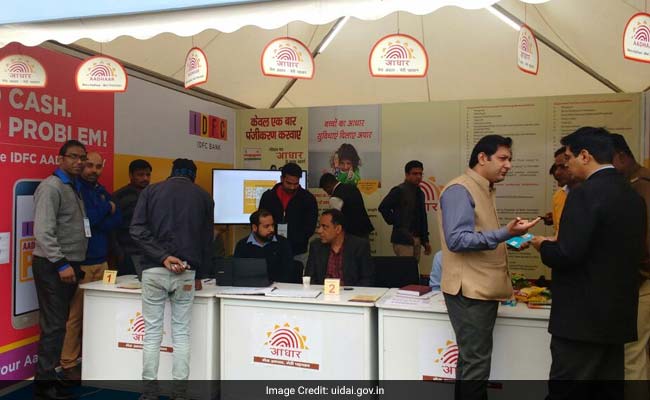
Facing a legal challenge to its law that makes an Aadhaar number a must for filing income tax returns, the central government told the Supreme Court on Wednesday during a three hour-long hearing that the need to uniquely identify tax payers outweigh interests such as the citizen's right to be let alone. The government, which has detected nearly 10 lakh duplicate PAN cards, said "We are not a society of angels. We have a real problem, people don't pay taxes, make fake PAN cards". Linking Aadhaar to permanent account numbers, or PAN, is crucial to the Centre's efforts to curb rampant tax evasion, money laundering and expand the tax base. But three petitions before the top court have questioned the constitutional validity of the move, calling the provision enacted by parliament a compromise on civil liberties that has never been tried in any democratic country in the world. Questions have also been raised about the safety of data collected by the government.
Here are the top 10 points on this legal battle:
The Centre has been aggressively argued in support of its law to link Aadhaar numbers with PAN cards. But on Wednesday, it appeared to be on a back-foot for a bit when questions about data security were raised and the Centre's counsel A Sengupta was pointedly asked about the leak of 13 crore Aadhaar numbers.
Mr Sengupta initially suggested that the leak did not take place from the Unique Identification Authority of India, or UIDAI, that is mandated to issue the 12-digit unique identity numbers. He then confirmed that the leaks did take place but were at the level of the state governments who weren't able to balance between transparency and data protection concerns.
"There may be some errors here and there... No technology is 100 per cent fool proof", he argued, a remark that echoes finance minister Arun Jaitley's point in the Rajya Sabha that firewalls can be breached anywhere. "The Pentagon got hacked even without the Aadhaar," Mr Jaitley had said.
A division bench of the top court comprising Justices AK Sikri and Ashok Bhushan, which is expected to reserve its judgement after a last round of hearing tomorrow, had heard Attorney General Mukul Rohatgi reject concerns over intrusion of privacy concerns, arguing that citizens did not have the absolute right over their bodies. They could not, for example, commit suicide or abort at will.
Coinciding with the hearings, the government put out graphics on social media to publicise the popularity of Aadhaar. According to these, more than 1 crore income tax payers have already linked their Aadhaar with their PAN number. There are about 29 crore PAN cards, but only 5 crore of them are income tax assesses. The rest picked up the card as an identity document.
At Wednesday's hearing, the petitioners questioned many of the arguments, and facts, presented by the government. Including the claim that there were no duplicate Aadhaar numbers. The petitioners pointed that Aadhaar was the first identity document for only a miniscule percentage - 0.03 per cent - of the 113 crore people who have the number. For the rest, the Aadhaar number was issued after they produced identity documents including a PAN card that the government claims are unreliable.
Contradicting the top law officer's contention that Aadhaar was mandatory under a law passed by parliament, the petitioners drew the court's attention to how the UIDAI's website still claimed that Aadhaar enrolment was purely voluntary.
The top court is unlikely to delve into privacy concerns due to the Aadhaar number. The Centre, which claimed that privacy wasn't a fundamental right, has already persuaded the court in a different case to refer this aspect to a constitutional bench.
Aadhaar was launched by the previous UPA in 2009-10 to reduce the government's subsidy bill and remove duplicates from the home ministry-driven national population register that was inspired by BJP patriarch LK Advani's identity card project. After Prime Minister Narendra Modi came to power in 2014, he put the population register on hold and put his weight behind Aadhaar.
PM Modi also mandated that new-borns too be issued the number, not just children after they turn five. This would make the number, issued after a person's fingerprints and iris, a cradle to grave digital identity for every resident.

